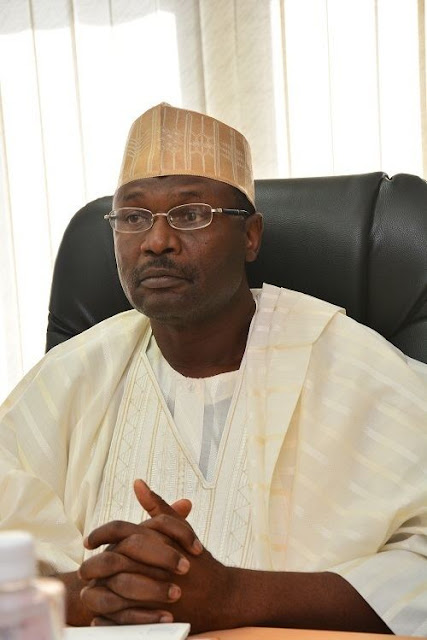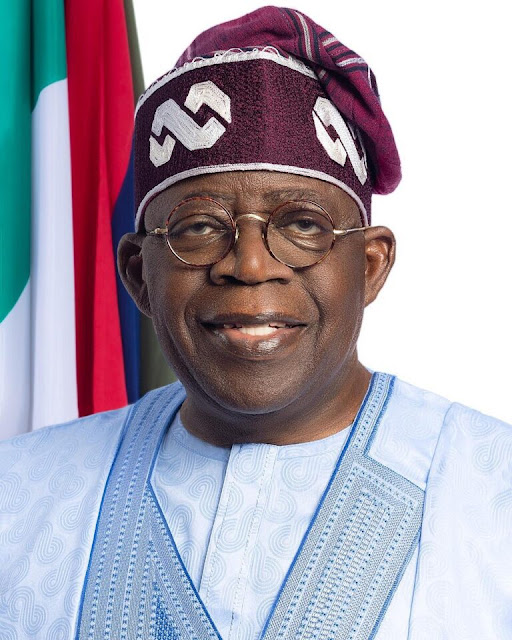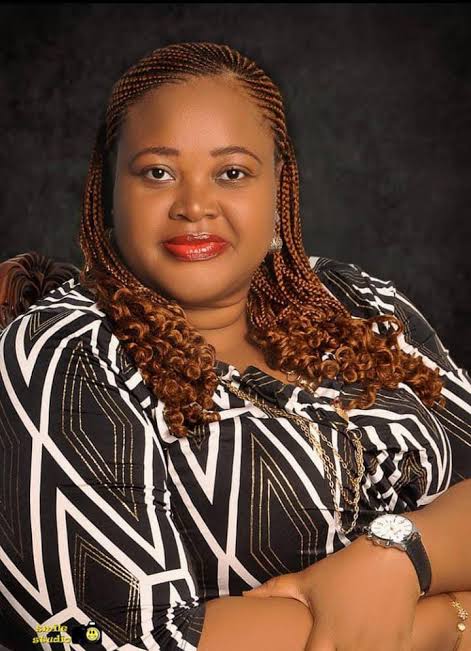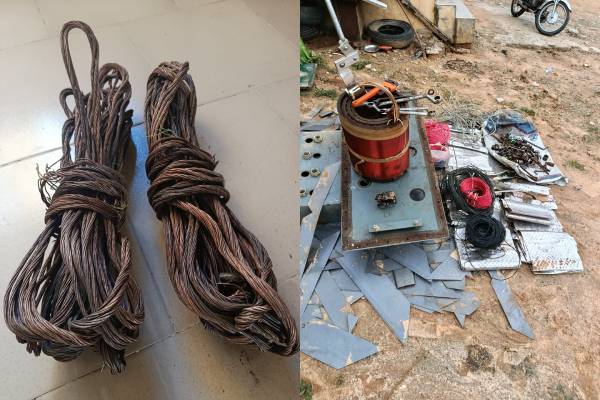In the ever-turbulent waters of Nigerian politics, where the echoes of past elections continue to reverberate through courtrooms, social media, and public discourse, a fresh call for accountability has emerged. On September 7, 2025, Paul Ibe, a steadfast media aide to former Vice President Atiku Abubakar, took to the social media platform X (formerly Twitter) to urge Professor Mahmood Yakubu, the Chairman of the Independent National Electoral Commission (INEC), to release the complete results of the 2023 presidential election before his tenure expires. This demand, laced with pointed references to alleged irregularities and a late-night result announcement, underscores the lingering distrust that has plagued Nigeria’s electoral process since the contentious vote that propelled Bola Ahmed Tinubu to the presidency. Ibe’s statement, which has since garnered thousands of interactions, frames the release of these results—starting from the polling unit level—as an essential act of courage and transparency, one that could finally lay to rest the “ghost of 2023.”
The timing of Ibe’s intervention is particularly poignant. With Yakubu’s term set to conclude in the coming months, as per INEC’s rotational leadership structure, this plea arrives amid whispers of potential transitions within the electoral body. Yakubu, who has helmed INEC since 2015, has overseen three major election cycles, including the historic 2019 and 2023 polls. Yet, his legacy remains mired in controversy, particularly from the opposition’s perspective. Ibe’s post reads: “I hope that before he ends his tenure as the chairman of @inecnigeria, Prof. Mahmood Yakubu will be courageous enough to announce the comprehensive results of the 2023 presidential election starting from the polling units (PU).” He further elaborated, “It matters less if those results have been mutilated. Let’s have it warts and all. That’s the only way to permanently rest the ghost of 2023 and resolve the 2am March 01, 2023, working from the answer result as announced by Prof Go To Court Mahmood Yakubu!” The sarcasm in the moniker “Prof Go To Court” is unmistakable, a nod to the frequent judicial dismissals of election petitions that have become a hallmark of Nigerian post-poll disputes.
To fully appreciate the weight of this demand, one must rewind to the seismic events of February 25, 2023, when Nigeria held its presidential election alongside National Assembly polls. This was no ordinary vote; it was the sixth since the return to civilian rule in 1999 and the first under the amended Electoral Act of 2022, which introduced innovations like the Bimodal Voter Accreditation System (BVAS) and the INEC Result Viewing Portal (IReV). These technological advancements were heralded as game-changers, promising real-time result uploads from polling units to curb manipulation. Over 93 million registered voters were eligible, with the contest boiling down to a three-horse race: Bola Tinubu of the ruling All Progressives Congress (APC), Atiku Abubakar of the Peoples Democratic Party (PDP), and Peter Obi of the Labour Party (LP). The stakes were immense in a nation grappling with economic woes, insecurity, and ethnic divisions, where the presidency rotates regionally under an informal zoning agreement.
The election unfolded amid high drama. Polling stations across the country’s 36 states and the Federal Capital Territory (FCT) buzzed with activity, but reports of glitches plagued the process from the outset. In Lagos, Rivers, and Kano—key battlegrounds—voters faced delays due to BVAS malfunctions, while violence marred proceedings in parts of the Southeast and North-Central regions. International observers from the European Union (EU), United States, and Commonwealth noted logistical shortcomings, though they praised voter enthusiasm. By the evening of February 25, partial results began trickling in via IReV, showing a fragmented lead: Tinubu strong in the Southwest and Northwest, Atiku dominant in the Northeast, and Obi surging in the Southeast and urban centers.
However, the real controversy erupted in the collation phase. INEC suspended the announcement indefinitely on February 26, citing disruptions in select states. This pause fueled speculation of backstage maneuvering. Opposition agents, including those from the PDP, accused INEC of succumbing to pressure from the APC-led federal government. Atiku, in a press conference on March 2, labeled the process “a sham,” pointing to the failure to upload over 90% of polling unit results to IReV as evidence of sabotage. The portal, meant to democratize result viewing, became a symbol of betrayal when it went dark, displaying only sporadic data. Civil society groups like Yiaga Africa corroborated these claims, estimating that only 30% of results were transmitted electronically, a far cry from INEC’s 100% pledge.
The climax came in the early hours of March 1, 2023, at the INEC headquarters in Abuja. At approximately 2 a.m., amid tight security and a media blackout, Yakubu declared Tinubu the winner with 8,794,726 votes (36.61%), edging out Atiku’s 6,984,520 (29.07%) and Obi’s 6,101,533 (25.40%). The announcement, broadcast live, was met with immediate outrage. PDP agents walked out in protest, and street demonstrations erupted in Lagos and Abuja. Atiku rejected the outcome, filing a petition at the Presidential Election Petition Court (PEPC) on March 28, 2023, alleging non-compliance with electoral laws, forgery of Tinubu’s educational records, and undue influence by security forces. Obi followed suit, while the APC dismissed the challenges as “sore losers’ tantrums.”
The legal odyssey that ensued captivated the nation. The PEPC, presided over by Justice Haruna Tsamani, heard arguments from May to July 2023. Atiku’s team, led by Chief Chris Uche (SAN), presented witnesses and documentary evidence, including Form EC8A sheets from polling units that purportedly showed him leading in several states. They argued that INEC’s over-voting claims were inflated to discredit legitimate votes. However, the court ruled on September 6, 2023, dismissing the petition for lacking merit, citing insufficient proof of widespread irregularities. The Supreme Court, in a unanimous judgment on October 26, 2023, upheld the ruling, with Justice Davids Inyang stating that petitioners must prove non-compliance substantially affected the outcome—a threshold Atiku failed to meet.
This judicial closure did little to quell public skepticism. The “ghost of 2023” Ibe references persists in the form of conspiracy theories, academic analyses, and diaspora activism. Reports from the Situation Room—a coalition of 85 civil society organizations—highlighted discrepancies: for instance, in Lagos, where Tinubu won 572,606 votes, independent tallies suggested lower figures due to voter suppression in opposition strongholds like Eti-Osa and Amuwo-Odofin. In Adamawa, a recollation drama saw initial leads for Atiku reversed, prompting accusations of ballot stuffing. The EU Election Observation Mission’s final report in November 2023 criticized INEC for “poor planning” and “inadequate transparency,” recommending reforms to the result management process.
Paul Ibe’s intervention revives these debates at a critical juncture. As Atiku’s longtime spokesperson, Ibe has been a vocal defender of the PDP flagbearer’s candidacy. A communications expert with a background in journalism, Ibe joined Atiku’s team in 2010 during his vice-presidential days. He has authored several books on Nigerian politics and frequently engages on X, where his handle @PaulIbe_ boasts over 100,000 followers. Ibe’s post is not isolated; it aligns with Atiku’s post-election strategy of sustained pressure on INEC. In April 2024, Atiku had similarly demanded the release of certified true copies of result sheets, which INEC partially complied with but redacted sensitive data. Ibe’s call for “warts and all” results—acknowledging potential mutilation—suggests a pragmatic shift: even flawed data could expose systemic flaws, bolstering future reform agendas.
Mahmood Yakubu, the target of this plea, embodies the paradoxes of Nigeria’s electoral evolution. Appointed in 2015 by then-President Muhammadu Buhari, the soft-spoken professor from Taraba State holds a PhD in History from the University of Birmingham. Under his watch, INEC introduced BVAS in 2020 off-cycle elections and expanded voter registration to unprecedented levels. Yet, critics like Ibe portray him as evasive, earning the “Go To Court” moniker from opposition chants during the 2023 collation. Yakubu has defended his record, attributing glitches to technical issues rather than malice. In a July 2025 interview with Channels TV, he announced plans for a post-election review committee, hinting at internal audits but stopping short of full disclosures. His tenure ends in October 2025, with speculation rife about a successor—possibly from the Southeast to balance regional representation.
The implications of Ibe’s demand extend far beyond 2023. Nigeria’s democracy, Africa’s largest, hinges on electoral integrity. The 2023 polls cost over N300 billion ($700 million), yet delivered a fragmented mandate: Tinubu’s victory masked a polarized electorate, with Obi mobilizing a youth-driven “Obidient” movement that nearly upended the duopoly. Releasing full results could validate or debunk claims of 20 million “missing votes,” as alleged by the opposition. It might also inform the upcoming 2027 cycle, where Tinubu’s APC seeks re-election amid economic reforms like fuel subsidy removal and naira floatation, which have sparked protests.
Atiku Abubakar himself looms large in this narrative. At 78, the Waziri of Adamawa has contested the presidency five times (1993, 2007, 2019, 2023, and a proxy in 2015), earning the sobriquet “Nigeria’s Eternal Candidate.” A former customs officer turned billionaire businessman, Atiku’s PDP primary win in 2022 was a masterclass in coalition-building, securing Northern Muslim votes while courting Southern Christians. His petition argued for his eligibility as the “wazobia” candidate—representing West (Yoruba), East (Igbo alliances), and North. Post-loss, Atiku has pivoted to mentorship, advising younger politicians like Obi and engaging in philanthropy through the Atiku Foundation. Yet, his silence on Ibe’s post suggests tacit endorsement, keeping the pressure on INEC.
This call resonates in a broader context of electoral reforms. The Electoral Act Amendment Bill, stalled in the National Assembly since 2024, proposes mandatory electronic transmission and diaspora voting. Civil society, via groups like the Policy and Legal Advocacy Centre (PLAC), advocates for an Electoral Offences Tribunal to prosecute violations swiftly. Internationally, the U.S. Millennium Challenge Corporation has tied $400 million in aid to governance improvements, implicitly referencing 2023 lapses. In the digital age, platforms like X amplify such demands; Ibe’s post trended under #Release2023Results, drawing endorsements from Obi’s camp and even APC critics disillusioned by Tinubu’s administration.
Critics of Ibe’s plea, however, argue it’s a rehash of defeated claims. APC spokespersons like Bayo Onanuga have dismissed similar calls as “post-mortem agitation,” pointing to the Supreme Court’s finality. INEC, in a September 8, 2025, statement, reiterated that all results are archived and available via FOI requests, but full polling unit data remains classified to protect collation integrity. Yakubu’s potential response could define his exit: compliance might invite scrutiny of past decisions, while refusal fuels narratives of opacity.
As Nigeria navigates its third decade of uninterrupted democracy, Ibe’s words serve as a reminder that unresolved elections erode trust. With off-cycle polls in Edo and Ondo states slated for September 2025, the stakes for transparency are higher. Will Yakubu heed the call, or will the “ghost of 2023” haunt future ballots? Only time—and perhaps a dose of courage—will tell.
The Genesis of Distrust: Unpacking the 2023 Election’s Fault Lines
To delve deeper into the saga, one must trace the roots of the 2023 presidential election’s controversies, which Ibe’s demand seeks to exorcise. The vote was born of necessity: President Buhari, constitutionally barred from a third term, anointed Tinubu as APC’s flagbearer in a June 2022 primary marred by legal challenges. Tinubu, a former Lagos governor and political godfather, campaigned on “Renewed Hope,” promising continuity with Buhari’s infrastructure push while addressing insecurity and inflation. Atiku, leveraging his vice-presidential experience under Olusegun Obasanjo, positioned himself as the experienced unifier, with a manifesto emphasizing job creation and anti-corruption. Obi, the dark horse, disrupted the script with his “third force” narrative, appealing to urban millennials tired of godfatherism.
Logistically, INEC prepared ambitiously. Over 1.6 million ad hoc staff were recruited, and 176,846 BVAS machines deployed. Yet, pre-election red flags abounded: a fuel scarcity engineered by subsidy fears led to long queues, while naira redesign policies caused cash shortages, disenfranchising rural voters. On election day, turnout was a dismal 26.72%, the lowest since 1999, attributed to apathy and logistics. In the Southwest, Tinubu’s home base, results were swift; in the North, Atiku’s stronghold, delays were rife.
The IReV portal’s failure was pivotal. Designed to upload scanned Form EC8A (polling unit results), it promised public verification. By February 26, only 20% of uploads were visible, with glitches blamed on server overload. PDP and LP agents stormed INEC offices, demanding access. Collation at the National Collation Centre became a pressure cooker: state returning officers, some allegedly coerced, announced figures that diverged from IReV. For example, in Obi’s Lagos, official tallies showed 582,454 votes for Tinubu versus 410,266 for Obi, but parallel counts by observers indicated closer margins.
Atiku’s legal challenge hinged on Section 134(1) of the Constitution, requiring a petitioner to prove non-compliance and its material effect. His team subpoenaed INEC servers, but the commission claimed data was deleted per policy—a revelation that stunned the court. Forensic experts testified on over-voting in 744 polling units, but the judges deemed it insufficient to upend the result. Obi’s petition, focusing on Tinubu’s disqualification over alleged drug forfeiture in the U.S., was similarly rebuffed.
Post-judgment, the discourse shifted to reforms. The 2023 election exposed BVAS limitations: biometric accreditation failed in 10% of cases due to poor internet. IReV’s 89% non-compliance rate, per INEC’s own admission, validated opposition claims. Academic studies, like one from the University of Lagos in 2024, estimated irregularities cost Atiku up to 2 million votes. Public opinion polls by NOI Polls in 2024 showed 55% of Nigerians doubting the result’s legitimacy, highest among youth.
Paul Ibe’s role amplifies this narrative. As Atiku’s digital voice, he has chronicled the campaign via X threads, from primaries to petitions. His “warts and all” phrasing acknowledges potential flaws in PDP’s own collation but prioritizes systemic exposure. This echoes Atiku’s October 2023 Supreme Court speech: “We accept the verdict but not the process.” Ibe’s post, timed post-Yakubu’s tenure announcement, aims to shape legacy debates.
Yakubu’s defense has been measured. In his 2024 budget defense, he allocated N10 billion for technology upgrades, including blockchain for results. Yet, opposition lawmakers, led by PDP’s Aisha Ahmed, grilled him on 2023 lapses during oversight visits. His “courage” is questioned not just for 2023 but past elections: the 2019 undercounting of Atiku’s votes and 2021 Anambra’s violence.
Broader Ramifications: Electoral Integrity in Nigeria’s Democracy
The demand for full results intersects with Nigeria’s democratic health. Since 1999, elections have alternated power thrice, but each cycle—2003’s rigging, 2007’s chaos, 2011’s violence, 2015’s peace, 2019’s tech glitches—has eroded confidence. The 2023 vote, with its tech promise, amplified disillusionment. Economic fallout: Tinubu’s reforms, while stabilizing the naira, spiked inflation to 34% in 2024, fueling #EndBadGovernance protests where 2023 grievances resurfaced.
Regionally, distrust festers. In the Southeast, Obi’s 95% sweep reflected marginalization; releasing results could quantify Igbo votes, aiding equity debates. In the North, Atiku’s base questions banditry’s electoral links. APC’s response, via Felix Morka, labels such calls “revisionism,” citing economic gains like 3% GDP growth in Q2 2025.
Civil society’s push is robust. The “Vote Not Fight” campaign, backed by USAID, trains 50,000 agents for future polls. Legal eagles like Femi Falana (SAN) argue for contempt charges against INEC for non-disclosure. Internationally, the African Union Election Observation Mission’s 2023 report urged full data release, influencing AU’s charter reviews.
For Atiku, this is personal. His 1993 annulment trauma—when military dictator Ibrahim Babangida voided his near-win—mirrors 2023. At 78, he eyes advisory roles, perhaps in ECOWAS. Ibe’s plea keeps his flame alive, mentoring figures like Governor Ademola Adeleke.
As September 2025 unfolds, with Yakubu’s exit looming, pressure mounts. Will INEC comply, risking audits? Or stonewall, inviting more “ghosts”? This moment tests Nigeria’s resolve: transparency or endless cycles of doubt.
Legacy and Future: Charting a Path Beyond 2023
Yakubu’s potential legacy hinges here. His innovations—176,846 BVAS units, 93% accreditation—merit praise, but opacity taints them. A full release could redeem him, exposing flaws for reform. Precedents exist: Kenya’s 2017 Supreme Court annulment led to cleaner 2022 polls.
For opposition, it’s strategic. PDP’s 2025 congress eyes Atiku’s endorsement for 2027. Obi’s LP, post-2023 surge, merges with allies, using data demands to build coalitions. APC, buoyed by state wins, prepares defenses.
Public discourse thrives on X: #Release2023Results trends with 500,000 mentions by September 8, blending memes and analyses. Diaspora Nigerians, via Nigerians in Diaspora Organization, petition the UN for intervention.
Economically, credible elections matter. Investors, per World Bank 2025 report, cite electoral risk as a $10 billion drag. Reforms could unlock funds.
In sum, Ibe’s call is a clarion for accountability. As Nigeria marks 25 years of democracy in 2024 (retrospectively), honoring it means confronting 2023’s shadows. Courage, as Ibe urges, could illuminate the path to a more just republic.
The Human Element: Voices from the Ground
Beyond elites, 2023’s impact lingers in communities. In Adamawa, Atiku’s home, farmers recall polling unit chaos: “We voted early, but results vanished,” says local PDP chair Musa Ibrahim. In Lagos’ Oshodi, Obi’s supporters protest yearly, demanding data to prove suppression.
Ibe’s post humanizes the fight. As a father and activist, he bridges generations, echoing Atiku’s resilience. Yakubu, a family man, faces similar scrutiny.
This narrative, woven from hope and skepticism, defines Nigeria’s story. Releasing results isn’t closure—it’s a foundation for trust.






